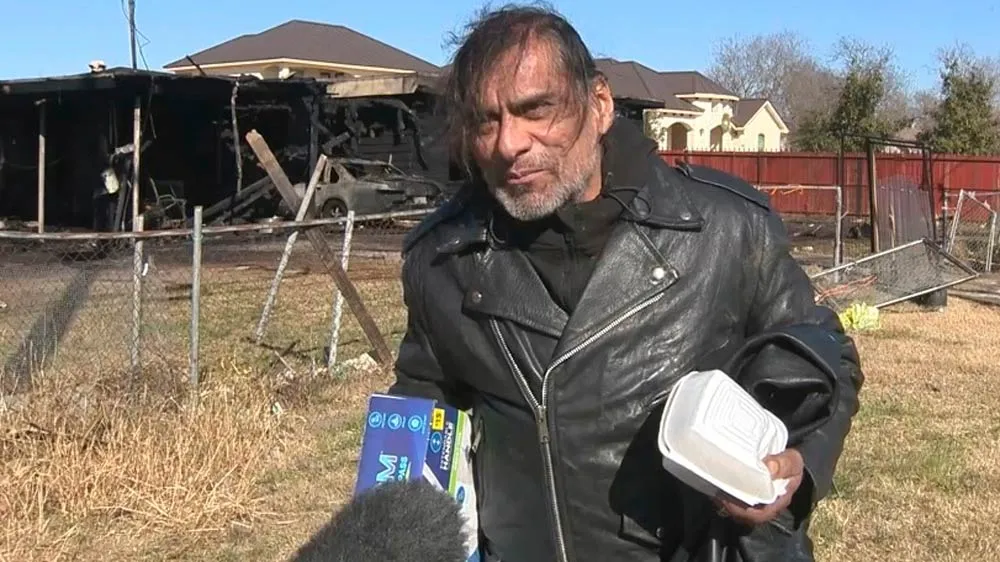December 18, 2013
Venezuelan Inflation Spoils Christmas Tradition
Matthew Wexler READ TIME: 3 MIN.
Freshly greased plantain leaves, a kitchen splattered with corn meal, and festive music accompanied by generous amounts of alcohol all make up one of Venezuela's most-enduring Christmas traditions: the gathering of family to prepare a corn dough tamale known as the hallaca.
But this year, the icon of the Venezuelan kitchen is under threat from the nation's grinding economic crisis.
With inflation near a two-decade high of 54 percent, prices for many of the treat's trademark ingredients have skyrocketed beyond the reach of many family budgets. And just finding some of the fixings can be an ordeal, with everything from vegetable oil to beef hard to come by as government price controls discourage production and contribute to record levels of food shortages.
"It's very sad. I don't know yet if we'll be able to make any this year," Maria Elena Ortiz, 35, said as she hunted in a Caracas supermarket for the 10 kilograms (22 pounds) of corn flour she and her family need to make their annual batch of about 80 hallacas.
The return of the familiar tradition is for many a welcome respite from a rocky year marked by the death of President Hugo Chavez, a disputed election to succeed him and, more recently, the shuttering of businesses accused of waging economic war against the government.
While tamales are common throughout Mexico, Central America and parts of South America, the Venezuelan variant stands out for its mixture of European, indigenous and African flavors that reflect the nation's multicultural roots. That and the role it plays bringing families together in sometimes two-day cooking marathons add an extra seasoning that can't be mass produced.
The corn dough filling of the hallaca is greased with annatto-colored cooking oil and topped with chicken and pork stew. Green olives, raisins and capers provide savory accents before the creation is wrapped in dried plantain leaves popular in Africa cuisine, tied in a rectangle and cooked in boiling water.
It's not clear how the hallaca came about. One popular version holds that it arose during colonial times when, around Christmas, slaves would collect food scraps left by plantation owners and use them to spice up their daily diet of cornmeal dough.
In modern times, it's the matriarch of the family who usually supervises the extensive chopping of vegetables, pin-rolling of the corn dough and slow-cooking of the chicken and pork stew that makes up the hallaca's stuffing. Gaita folk music that's popular around Christmas fills countless kitchens across this 30 million-person country, as does the smoky smell of dried plantain leaves.
"It's a collective effort full of emotion that makes everyone believe that the best-tasting hallaca is the one my mom makes," said Federico Tischler, a Caracas-based chef who has delved deep into Venezuela's gastronomic history.
So popular is the dish that President Nicolas Maduro is stepping up efforts to guarantee Venezuelans that they'll find the necessary ingredients, many of them imported, and that their wallets won't be emptied.
In what's become a common holiday practice in recent years, the government is organizing special food caravans to distribute ingredients at "fair" prices. It's also increased inspections of supermarkets to prevent retailers from charging "speculative" prices.
The Food Ministry insists that shoppers at state-run supermarkets need to spend no more than 13.19 bolivars per hallaca, or about $2 at the official exchange rate, to make a typical batch of 50.
But shopping at such discount retailers can be trying: Lines are long, supplies are rationed and government-trained civilian militias patrol the aisles.
Meanwhile at private supermarkets, where the vast majority of Venezuelans shop, you'd need to spend nearly triple that amount to acquire all the ingredients.
Ortiz said her family plans to continue the hallaca tradition, but the shortages and price hikes have drained much of the joy out of the season.
"We have to run around all over Caracas to find the list of ingredients," she said. "This is a nightmare."
Matthew Wexler is EDGE's Senior Editor, Features & Branded Content. More of his writing can be found at www.wexlerwrites.com. Follow him on Twitter and Instagram at @wexlerwrites.







